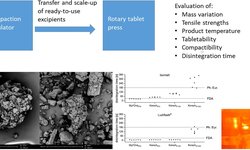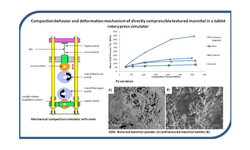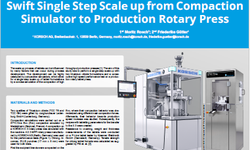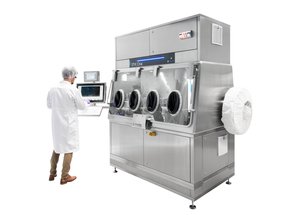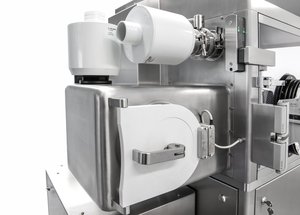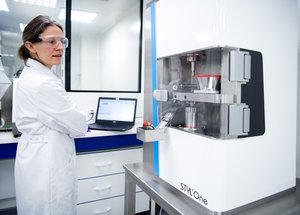Scientific papers
The incorporation of internal lubrication is often associated with a decline in tabletability, and various factors such as the deformation mechanism, lubricant type, lubricant blending time, and paddle speed (PS) of the forced feeder can influence this phenomenon. This study delved into the impact of lubricant blending time and PS of forced feeders on the tensile strength of tablets containing lubricated microcrystalline cellulose (MCC) and lactose. Lubricants such as magnesium stearate (MgSt), sodium stearyl fumarate (SSF), and stearic acid (SA) were employed. Tablets were manufactured on both a compaction simulator and a rotary tablet press to assess lubricant sensitivity during upscaling. Notably, lubricant sensitivity was higher for MCC compared to lactose, attributed to the greater plasticity of MCC.
The reduction in tensile strength upon the addition of lubricants followed this order: MgSt > SSF > SA, a trend that could be linked to the particle size, specific surface area, and particle shape of the lubricants. Despite variations in tensile strength among lubricant types, comparable ejection forces were obtained. The influence of PS on tensile strength outweighed that of lubricant blending time for both tableting machines. A strong correlation in tensile strength and lubricant sensitivity between the compaction simulator and rotary tablet press was observed, established through the calculation of paddle passes (NPP).
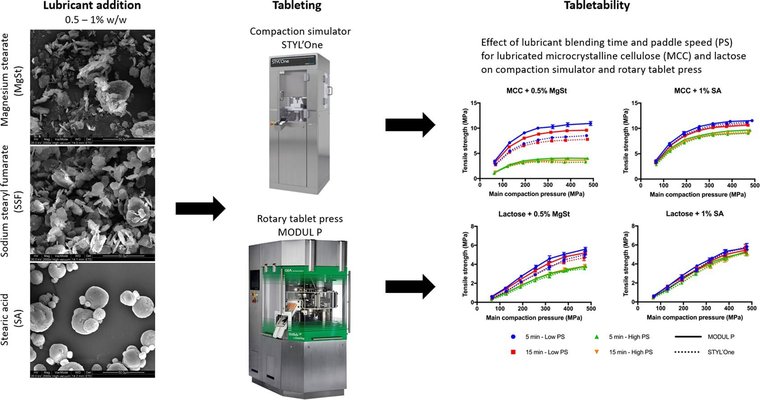
Comments
No comments posted yet.
Add a comment

